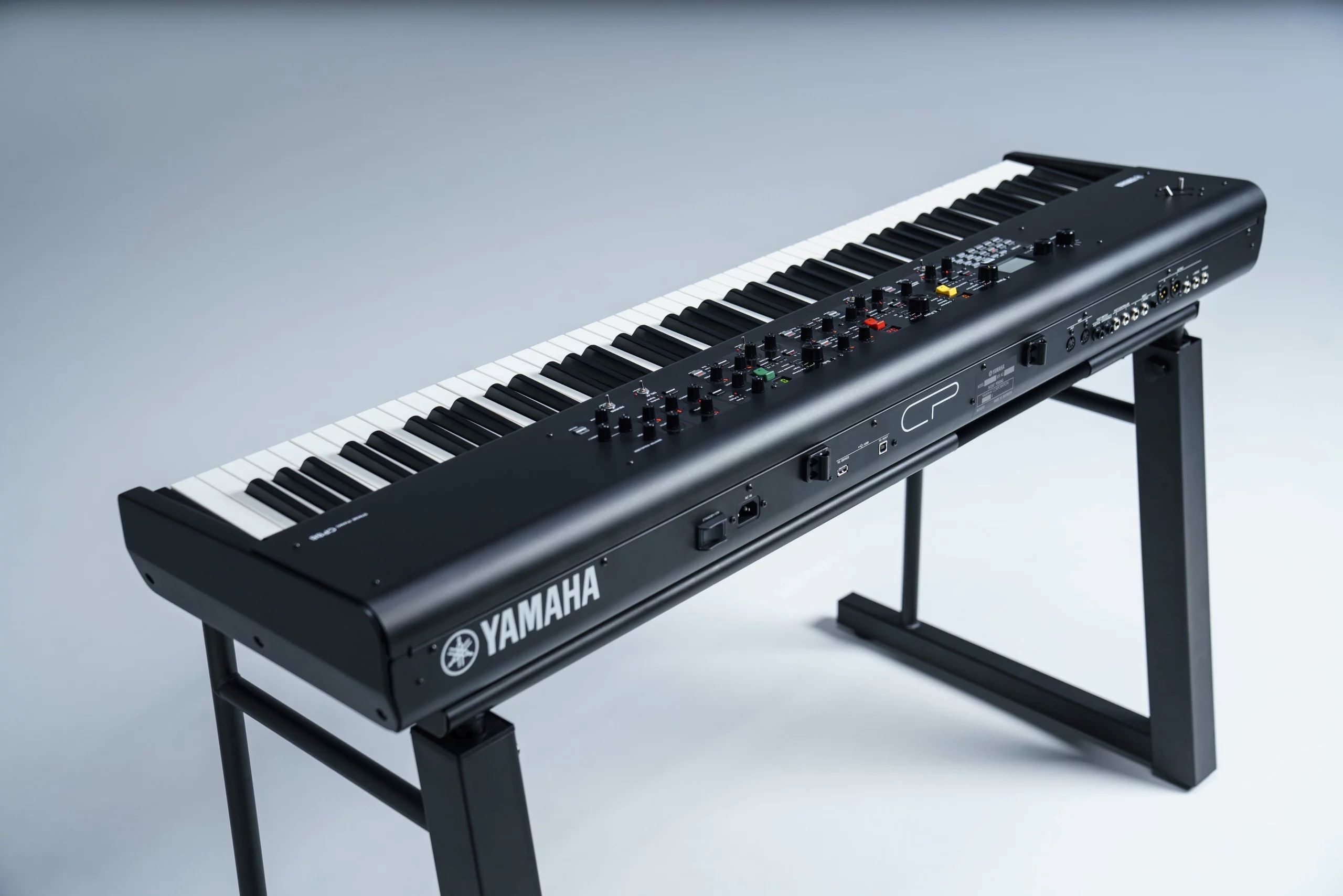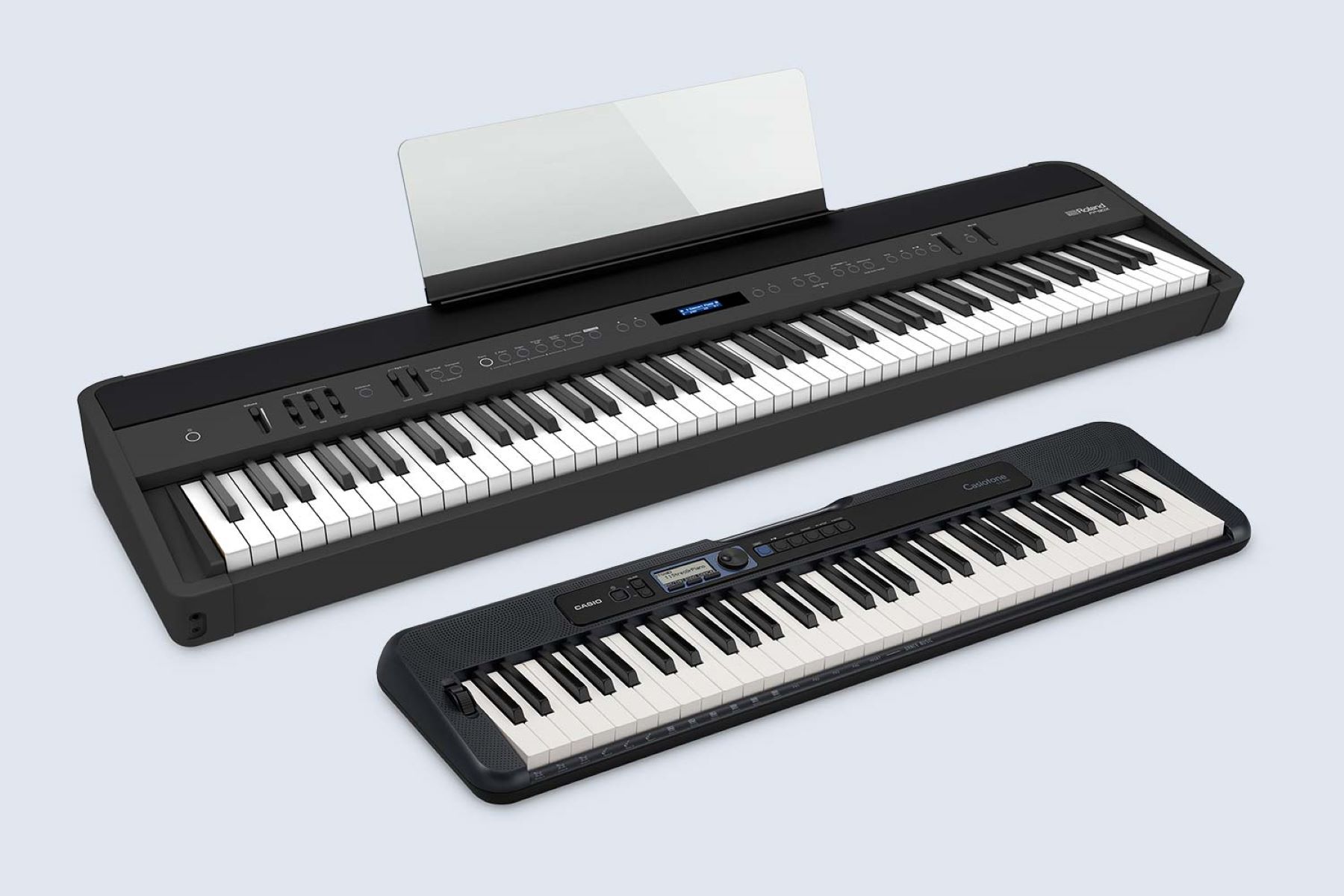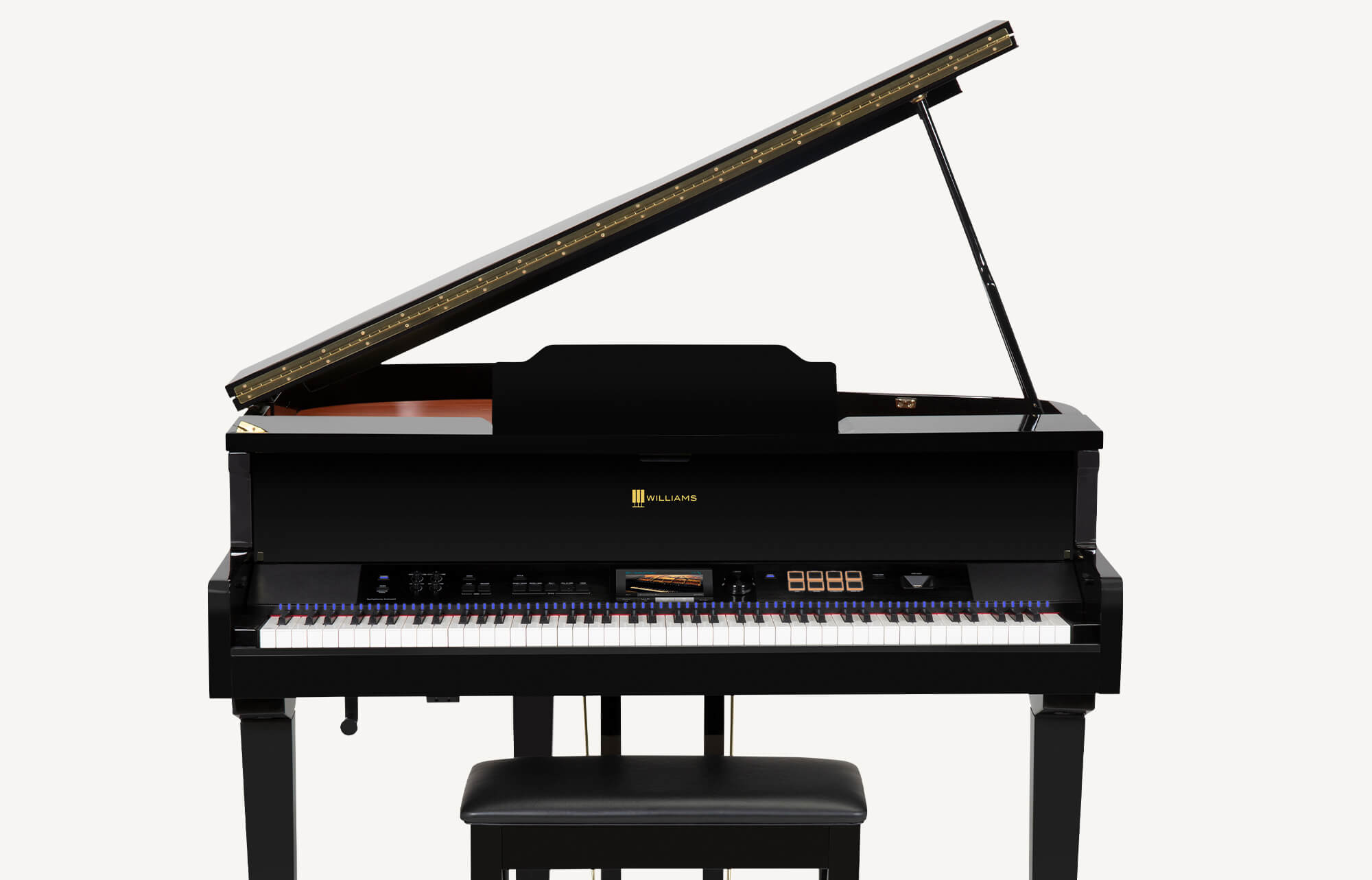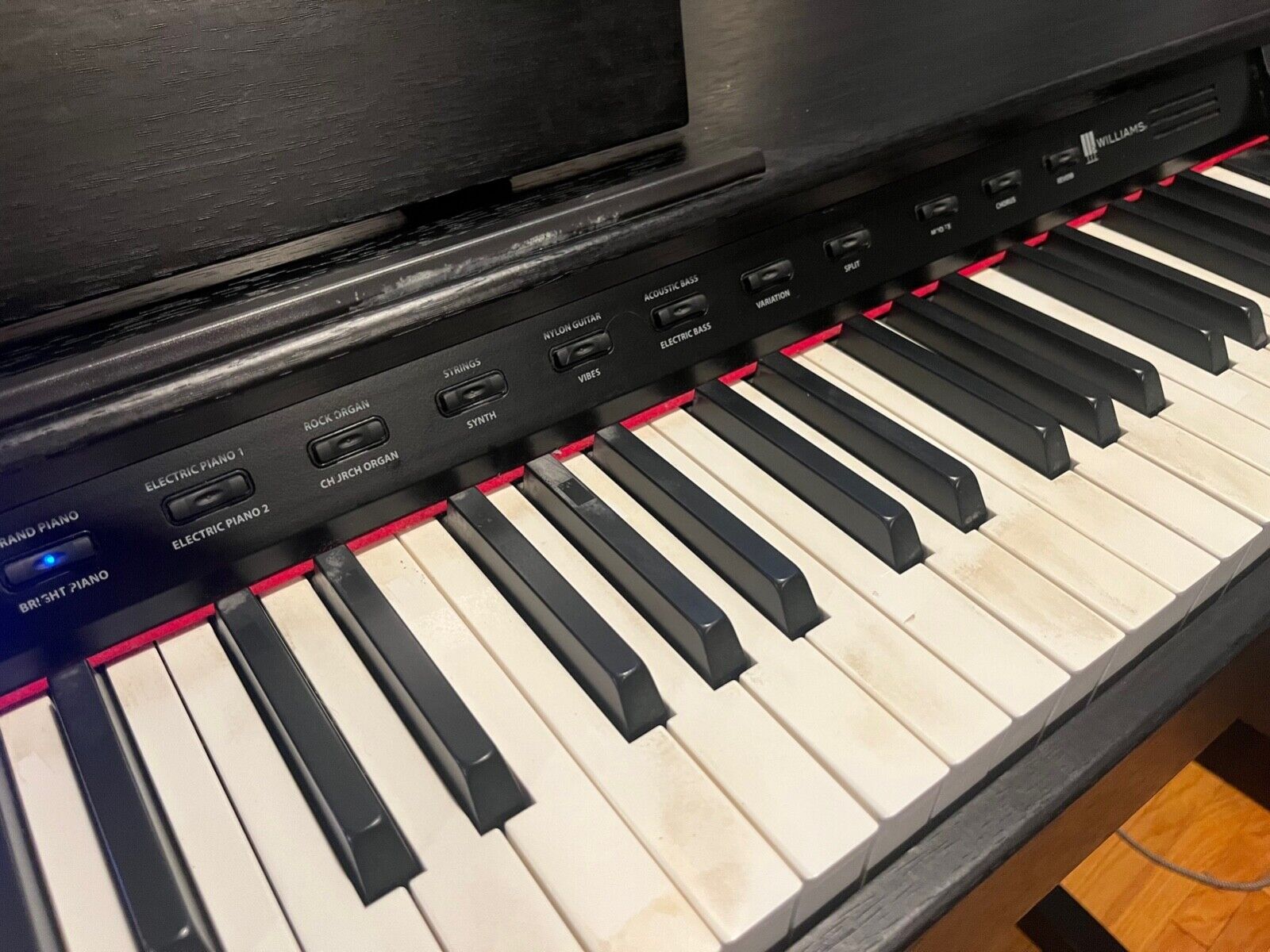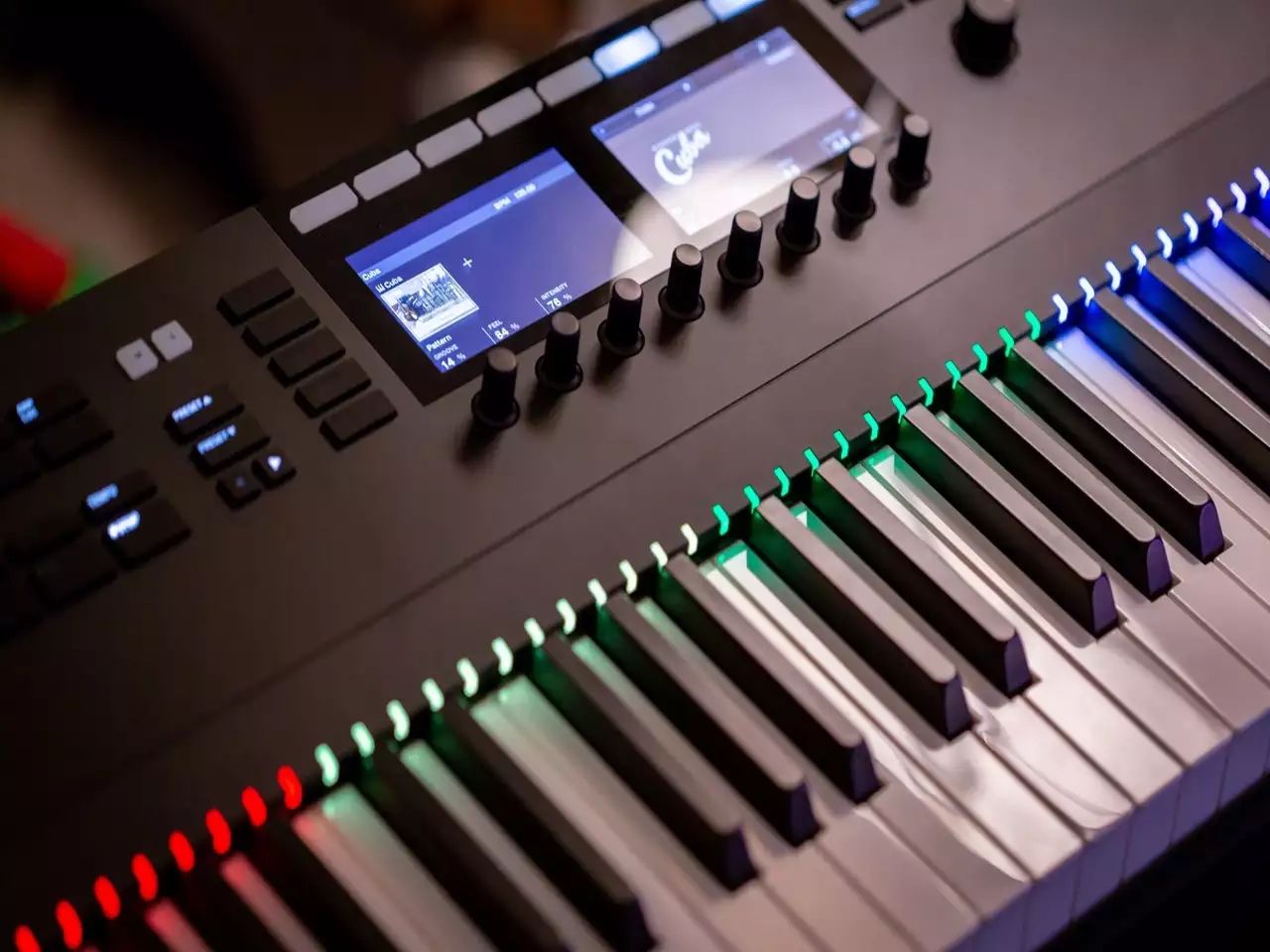Introduction
Digital pianos have revolutionized the music industry, offering a blend of advanced technology and classic piano features. These instruments have gained immense popularity among musicians, hobbyists, and professionals due to their portability, sound quality, versatility, connectivity, and performance features. Understanding the significance of a stage digital piano is essential for anyone looking to invest in a reliable and high-performing instrument.
Digital pianos are designed to replicate the sound and feel of traditional acoustic pianos while incorporating modern functionalities. They are equipped with weighted keys, realistic sound samples, and various instrument voices, making them suitable for a wide range of musical genres and performance settings. Whether you are a budding musician, a seasoned performer, or a music enthusiast, a stage digital piano holds significant value in enhancing your musical journey.
Stay tuned as we delve into the various aspects that make stage digital pianos indispensable for musicians of all levels. From their portability and sound quality to their versatility, connectivity, and performance features, each element contributes to the overall significance of these remarkable instruments. Let's explore the world of stage digital pianos and uncover the reasons behind their widespread acclaim.
Portability
One of the most significant advantages of stage digital pianos is their unparalleled portability. Unlike traditional acoustic pianos, which are bulky and challenging to transport, stage digital pianos are designed to be lightweight and easily portable. This feature is particularly beneficial for musicians who perform at various venues, travel frequently, or have limited space.
Stage digital pianos are constructed with portability in mind, often incorporating compact designs without compromising on key features and sound quality. They are equipped with built-in speakers, eliminating the need for external amplification in many performance settings. Additionally, some models offer detachable stands and convenient carrying cases, further enhancing their portability and ease of transportation.
For musicians who frequently gig at different locations, such as small venues, recording studios, or outdoor events, the portability of a stage digital piano is a game-changer. It allows for effortless setup and breakdown, enabling performers to focus on their music without the logistical challenges posed by traditional pianos. Whether it’s a solo performance, a collaborative jam session, or a studio recording, the portability of a stage digital piano ensures that the instrument can adapt to diverse musical environments with ease.
Furthermore, the compact nature of stage digital pianos makes them ideal for practice and rehearsals in limited spaces, such as home studios, dorm rooms, or apartments. Musicians can enjoy the authentic touch and sound of a piano without sacrificing valuable living or working space. This portability feature not only caters to professional musicians on the go but also appeals to students, educators, and hobbyists seeking a convenient and space-efficient instrument.
Ultimately, the portability of stage digital pianos redefines the possibilities for musical expression, enabling performers to bring their music to various audiences and settings without the logistical constraints associated with traditional acoustic pianos.
Sound Quality
The exceptional sound quality of stage digital pianos is a defining feature that sets them apart in the realm of musical instruments. These pianos are engineered to deliver a rich, authentic acoustic piano sound while offering a diverse range of instrument voices and sound customization options. The advanced sound sampling technology employed in stage digital pianos captures the nuances of a grand piano’s tone and resonance, providing players with a truly immersive and expressive playing experience.
Furthermore, the sound quality of stage digital pianos is complemented by their built-in speaker systems, which are designed to reproduce the intricate details of the instrument’s sound with precision and clarity. Whether performing in intimate venues, recording studios, or outdoor settings, musicians can rely on the superior sound projection and fidelity of stage digital pianos to captivate their audiences.
Beyond emulating the sound of acoustic pianos, these instruments offer a diverse selection of instrument voices, including electric pianos, organs, strings, and more. This versatility allows musicians to explore a wide spectrum of musical genres and styles, making stage digital pianos an indispensable tool for creative expression and performance.
Moreover, the sound quality of stage digital pianos is further enhanced by advanced sound-shaping features, such as reverb, chorus, and EQ settings, enabling players to tailor the instrument’s sound to suit their artistic vision and performance requirements. Whether seeking a lush, resonant ambiance or a crisp, focused tone, musicians can utilize these sound customization options to achieve their desired sonic palette.
Ultimately, the impeccable sound quality of stage digital pianos elevates the musical experience for performers and audiences alike, offering a harmonious blend of tradition and innovation that resonates with the demands of modern musicians.
Versatility
Stage digital pianos are revered for their exceptional versatility, catering to the diverse musical needs and preferences of performers across genres and styles. Unlike their acoustic counterparts, which are limited to producing piano sounds, stage digital pianos offer a wide array of instrument voices, effects, and performance features, making them indispensable tools for musicians seeking versatility and adaptability in their performances.
One of the key aspects of the versatility of stage digital pianos is their ability to emulate various instrument sounds with remarkable accuracy. From authentic electric piano and organ tones to lush strings and dynamic synth sounds, these instruments empower musicians to explore an extensive sonic palette, expanding the possibilities for musical expression and creativity.
Moreover, stage digital pianos often feature split and layer functions, allowing performers to combine multiple instrument voices or divide the keyboard into distinct sections, adding depth and complexity to their musical arrangements. This versatility is particularly valuable for solo performers, ensemble players, and studio musicians who seek to craft immersive and dynamic soundscapes in their performances and recordings.
Furthermore, the versatility of stage digital pianos extends to their performance features, including accompaniment styles, rhythm patterns, and recording capabilities. These instruments often integrate accompaniment tracks and backing rhythms, enabling musicians to create full-bodied arrangements and explore diverse musical genres, from jazz and pop to classical and beyond.
Additionally, the integration of recording and playback functions in stage digital pianos empowers musicians to capture their performances, experiment with musical ideas, and engage in productive practice sessions. This versatility not only fosters musical growth and exploration but also serves as a valuable tool for composition, songwriting, and music production.
Ultimately, the versatility of stage digital pianos transcends traditional boundaries, offering a dynamic and expansive platform for musical innovation and expression, enriching the musical landscape with its boundless creative possibilities.
Connectivity
Stage digital pianos are equipped with a range of connectivity options that enhance their functionality and integration with modern music production and performance setups. These instruments are designed to seamlessly interface with external devices, audio systems, and recording equipment, offering musicians a comprehensive platform for creative expression and collaboration.
One of the key connectivity features of stage digital pianos is their compatibility with computers and mobile devices. Through USB and MIDI connections, musicians can integrate their digital pianos with music software, virtual instruments, and digital audio workstations (DAWs), expanding their sonic capabilities and unlocking a world of creative possibilities. This connectivity is particularly valuable for composers, producers, and recording artists who seek to harness the power of digital technology in their musical endeavors.
Furthermore, stage digital pianos often feature audio input and output options, allowing musicians to connect to external amplification systems, mixers, and recording interfaces. This seamless integration ensures that the instrument’s pristine sound quality and expressive performance can be faithfully reproduced in live settings and studio environments, catering to the demands of professional musicians and audio engineers.
Moreover, the connectivity of stage digital pianos extends to their compatibility with headphones, enabling private practice sessions, silent rehearsals, and immersive playing experiences without disturbing others. This feature is particularly beneficial for students, educators, and musicians who require a quiet practice solution without compromising on sound quality or performance dynamics.
Additionally, many stage digital pianos offer Bluetooth connectivity, allowing wireless communication with smartphones, tablets, and other Bluetooth-enabled devices. This functionality opens up opportunities for streaming music, accessing educational resources, and integrating the piano with interactive learning apps, making the instrument an invaluable tool for music education and practice.
Ultimately, the connectivity options of stage digital pianos foster a seamless and integrated approach to music-making, empowering musicians to explore new horizons in performance, composition, and audio production while staying connected to the ever-evolving landscape of modern music technology.
Performance Features
Stage digital pianos are equipped with a diverse array of performance features that cater to the dynamic needs of musicians in live, studio, and practice settings. These instruments are designed to offer a comprehensive set of tools and functionalities that enhance the playing experience, inspire creativity, and facilitate expressive performances across musical genres and styles.
One of the key performance features of stage digital pianos is their responsive and realistic key action. These instruments often feature weighted or graded hammer-action keys that replicate the touch and feel of acoustic pianos, providing players with a nuanced and expressive playing experience. This key action is essential for pianists who seek an authentic and responsive platform for honing their technique and delivering emotive performances.
Furthermore, stage digital pianos integrate a range of performance controls and settings that allow musicians to customize their sound and playing experience. From intuitive control panels and LCD displays to real-time parameter adjustments, these instruments offer a high degree of flexibility and personalization, empowering performers to sculpt their sonic identity and adapt to diverse musical contexts.
Moreover, the performance features of stage digital pianos often include advanced sound-shaping tools such as reverb, chorus, and EQ settings, enabling musicians to tailor the instrument’s sound to suit their artistic vision and performance requirements. These customizable effects and settings add depth, dimension, and polish to the instrument’s sonic output, enriching performances with a professional and polished sonic character.
Additionally, many stage digital pianos incorporate performance-oriented functions such as split and layer modes, allowing musicians to divide the keyboard into distinct sections or combine multiple instrument voices for intricate and immersive soundscapes. These features are particularly valuable for solo performers, ensemble players, and studio musicians seeking to craft dynamic and expressive musical arrangements.
Ultimately, the performance features of stage digital pianos empower musicians to unleash their creativity, expressiveness, and technical prowess, providing a versatile and responsive platform for captivating performances, immersive practice sessions, and inspiring musical journeys.







